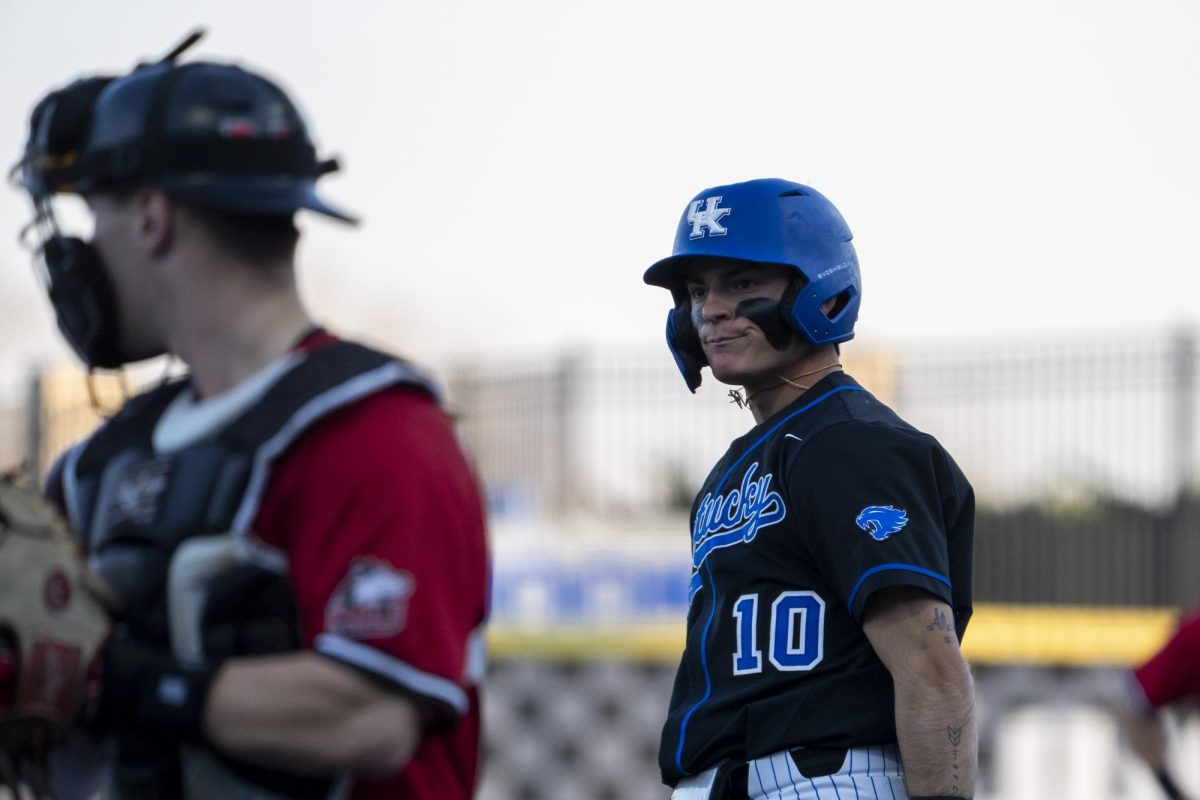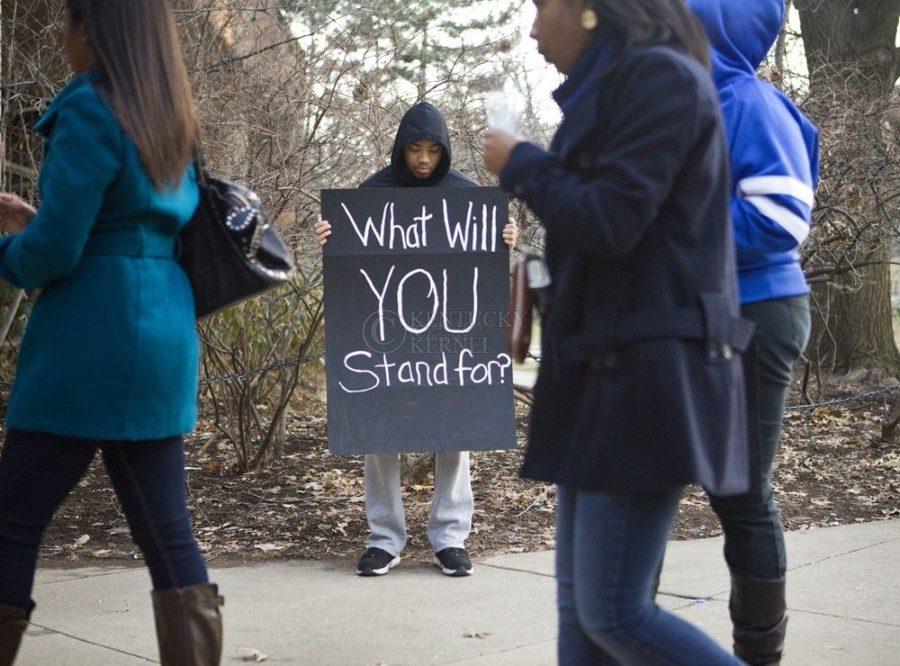Martin Luther King Center has continued King’s legacy for more than 30 years
January 15, 2018
In 1987, a renovation of the UK student center removed a wall, bulletin board and a regular meeting place of African-American students between classes.
This left something missing in their student life, said English professor Frank X. Walker, who was an undergraduate student at the time.
“Students took it as an affront and began to organize around the ideal of demanding that the university provide an alternate location that could serve as the official touchstone on campus for marginalized students to meet, socialize, study, eat, and share information,” Walker said.
This idea became an organization that is still on campus today: the Martin Luther King Center.
Chester Grundy, who was Director of African-American Student Affairs at the time, told students that most of UK’s peer institutions had cultural centers like what the King Center became, which was originally called the Martin Luther King Jr. Cultural Center. So several student leaders began meeting together, and this eventually became an official organization, said Walker, who was the first director of the King Center.
“The King Center quickly became a home away from home that provided a warm and familiar environment in the face of what most agreed was an inhospitable and overtly racist campus environment,” Walker said.
The King Center gave minority students an opportunity to see “another face that looked like theirs” that was not a custodian or food service worker, Walker said.
All of the events hosted by the King Center — from guest speakers to workshops to theater productions to athletic events — helped raise retention and helped students feel like they belonged at UK.
“Many alumni credit the King Center for helping them survive at UK,” Walker said.
He said the King Center even made many alumni enjoy returning to UK for homecoming and inspired them to contribute to UK after achieving professional success.
Fast forward more than 30 years— and almost 50 years after the assassination of Rev. Martin Luther King — and the King Center is still an important part of UK’s campus, now directed by Kahlil Baker.
“The most important impact of the King Center is the spaces that it provides to have difficult conversations,” Baker said. “Besides providing a safe space for underrepresented and historically marginalized students, our proudest work is pushing the collective needle of understanding.”
The King Center continues the legacy of King today, according to Black Student Union President David Simms and Vice President for Institutional Diversity Sonja Feist-Price.
Simms said that students of color can gather with other students of color at the King Center, while they may struggle to have a similar experience elsewhere on campus.
“The King Center does not just bear his name; the faculty in the center truly work with Dr. King’s mission and values in mind,” he said.
Feist-Price said the King Center helps students become global citizens through its co-curricular activities.
Baker said that the center furthers the mission of UK’s learning outcome that reads, “Students will demonstrate an understanding of the complexities of citizenship and the process of making informed choices as engaged citizens in a diverse, multilingual world.”
He said that King’s vision matched this sentiment.
“At his core, Dr. King was a radical thinker who, through his writings, speeches, protest and other forms of advocacy, encourages us to expand our levels of understanding and compassion for one another, and arguably most important, act on them,” Baker said.
Baker referenced this recent tweet by Bernice King, daughter of Martin Luther King Jr.
People not being “judged by the color of their skin, but by the content of their character” is just a part of my father’s dream. Read the entire ‘I Have a Dream’ speech + ‘Letter from Birmingham Jail’ + ‘Beyond Vietnam’ + etc. Let’s be weaned off of #MLK-lite. pic.twitter.com/J9HbTJ8cjj
— Be A King (@BerniceKing) January 2, 2018
Walker said he thinks the King Center is even more important today than it was in the 1980s. He said that while UK’s overall student population has grown, he has not seen parallel growth in the number of African-American students, faculty and staff.
He said the center is still doing important work, though he said he wishes it was still called a “cultural” center as it was at its founding.
“Taking culture out of the equation or mission is like reducing Dr. King to one speech,” he said. “But of course many people are more comfortable with the idea that he simply had a dream when he was so much more than that historical over-reduction.”
The King Center will host many events throughout the semester, which Feist-Price described as “cross-cultural learning opportunities.”
The schedule for the semester, provided by the King Center, can be viewed below.




























































































































































